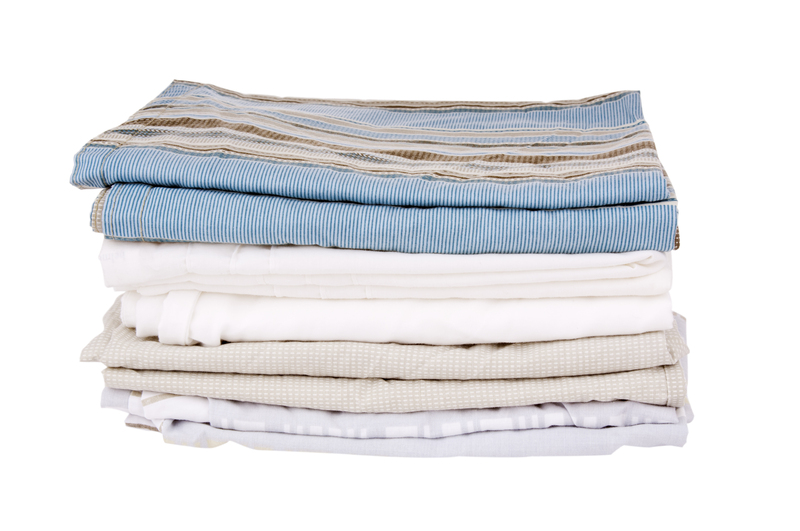From Trash to Treasure: The Art of Recycling Pots and Pans
Every year, countless kitchenware items end up in landfills, contributing to environmental pollution and resource waste. Among these discarded items are old pots and pans--often forgotten, dented, or scratched, yet filled with untapped potential. As sustainability becomes a global priority, the art of recycling pots and pans stands at the forefront of eco-friendly home solutions. Transforming culinary castoffs into useful new treasures isn't just practical--it's a creative journey that anyone can embark on to reduce waste and make a positive impact.
The Importance of Recycling Cookware
Why does recycling kitchenware matter? The average household replaces non-stick pans and worn-out pots every few years, but what happens to the outdated cookware? Improperly discarded pots and pans contribute to landfill accumulation and waste valuable materials such as aluminum, stainless steel, and copper. By learning the art of pan recycling, you help save energy, conserve raw resources, and minimize environmental harm.
- Resource Conservation: Metals in kitchenware can be recovered and reused, reducing the need for new mining and manufacturing.
- Waste Reduction: Fewer kitchen items in landfills mean a cleaner planet and less strain on waste management systems.
- Innovation & Creativity: Upcycling introduces exciting opportunities to repurpose cookware for new uses around the home and garden.

Types of Pots and Pans That Can Be Recycled
Before diving into the art of transformation, it's crucial to understand which types of cookware can be recycled. While most metal-based items can find new life, options may vary depending on local recycling facilities.
Commonly Recycled Cookware Materials
- Aluminum: Lightweight, durable, and widely recyclable, aluminum pots and pans are top candidates for recycling.
- Stainless Steel: This hard-wearing metal is 100% recyclable and maintains high value in the scrap metal market.
- Copper: Highly conductive copper cookware can be easily recycled, though sometimes offered for higher-value scrap.
- Cast Iron: Tough and rust-prone, old skillets and Dutch ovens can be melted down and reused.
Note: Cookware with non-stick coatings may require special handling. Contact your local recycling center to confirm their policies on Teflon and ceramic-coated items.
Kitchenware That Should Not Be Recycled Curbside
- Glass Lids: Tempered glass often isn't accepted in standard glass recycling streams.
- Pots and Pans with Plastic Handles: Some facilities require removal of plastic or rubber parts before recycling.
- Cookware with Wooden Accents: Ensure all non-metal materials are detached before recycling.
How to Prepare Pots and Pans for Recycling
Recycling your old kitchenware isn't as simple as tossing it in the bin. Follow these steps to ensure your pots and pans are ready for a new lease on life:
- Clean Thoroughly: Remove food residues and greasy deposits. Most recycling centers accept clean metal only.
- Remove Non-Metal Parts: Detach plastic handles, knobs, and any rubber or wooden accessories.
- Check Local Guidelines: Visit your municipality's website or call your recycling provider to confirm what's accepted in your area.
- Designated Drop-Off: Some communities offer special metal recycling events or require you to bring cookware directly to recycling centers.
- Donate If Possible: If the pans are functional, consider donating them to shelters, thrift shops, or community kitchens before recycling.
Creative Upcycling: Giving Old Cookware a New Life
Recycling is just one part of the story. Upcycling--or repurposing--your pots and pans can spark creativity and add unique flair to your home or garden. Below are innovative ideas to transform tired cookware from trash into treasure.
Home Decor with a Twist
- Wall Art: Transform a collection of vintage pans into a striking kitchen mural. Paint them, attach them to the wall, or use as a backdrop for recipes or herbs.
- Clocks: A saucepan lid makes the perfect base for a quirky, homemade wall clock.
- Candle Holders: Use small pots to hold pillar candles or succulents for a rustic, industrial look.
Garden and Outdoor Uses
- Planters: Drill drainage holes in the bottom and fill with soil for instant, durable flowerpots.
- Bird Baths: Large frying pans or woks can become shallow bird baths or feeders.
- Garden Markers: Use old lids or pan handles as creative plant markers.
Functional Crafts and DIY Projects
- Cake Stands: Stack and glue variously sized pans for a multi-layered dessert display.
- Storage Containers: Repurpose pans to organize sewing supplies, nuts and bolts, or office accessories.
- Musical Instruments: A collection of pots and lids makes for a fun percussion section for kids and adults alike.
The Environmental Benefits of Recycling and Upcycling Cookware
The positive impact of recycling and reusing pots and pans goes far beyond clearing out your cupboards. Here is how you're helping the planet:
- Lower Carbon Footprint: Recycling metals uses up to 95% less energy than producing them from raw materials.
- Reduced Pollution: Decreases harmful emissions and conserves water compared to traditional manufacturing.
- Less Landfill Waste: Keeps bulky, slow-decomposing items out of already overflowing landfills.
- Promotes Circular Economy: Encourages reuse and creative solutions, reducing our reliance on new products.
Where to Recycle Pots and Pans
Finding the best way to dispose of or repurpose your old kitchenware is easy with some research. Here's how and where to recycle pots and pans:
Municipal Recycling Programs
- Scrap Metal Bins: Many cities offer drop-off locations for metal household goods, often separate from curbside collections.
- Special Collection Events: Look for annual or seasonal recycling drives dedicated to hard-to-recycle items.
Donation Centers and Charities
- Local Thrift Stores: Gently used pans can benefit schools, shelters, or community kitchens.
- Donation Drives: Check with churches or nonprofits that accept kitchenware as part of household goods collections.
Scrap Yards and Recycling Businesses
- Metal Recycling Yards: Specialized scrapyards accept a wide range of metals and may pay for scrap aluminum, copper, and steel.
- Appliance and Electronics Shops: Some retailers take back old cookware as part of appliance trade-in or recycling programs.
Online Platforms
- Freecycle and Craigslist: Offer worn cookware online; someone may see value in your "trash."
- Upcycling Communities: Share on craft forums or social media groups for DIY enthusiasts seeking project materials.

Tips for Prolonging the Life of Your Cookware
While recycling and upcycling are vital ways to deal with old kitchenware, the most eco-friendly pans are the ones you use the longest. Follow these tips to extend their lifespan:
- Use Wooden or Silicone Utensils: Prevents scratches and prolongs non-stick coatings.
- Hand Wash When Possible: Dishwasher detergents can speed up surface wear on certain metals.
- Avoid Cooking Sprays: They can damage non-stick surfaces over time.
- Store Properly: Stack with protection between pans to avoid dents and scratches.
- Regular Maintenance: Reseason cast iron and polish copper to keep them useful for generations.
Conclusion: Embracing the Art and Impact of Pots and Pans Recycling
From trash to treasure isn't just a slogan--it's a movement that turns everyday waste into beautiful, purposeful objects. By recycling and upcycling pots and pans, you're giving new life to forgotten tools, reducing environmental impact, and expressing your creativity. Whether you take your cookware to a recycling center, donate it, or transform it into art or garden decor, every action counts towards a greener, cleaner planet.
Next time you replace a battered frying pan or dented stockpot, remember that the art of recycling cookware is in your hands. With a bit of imagination and commitment, you can help build a more sustainable kitchen--and world--for everyone.
Key Takeaways in the Art of Recycling Kitchenware
- Recycling pots and pans conserves resources and reduces landfill waste.
- Upcycling old cookware adds value and character to your home or garden.
- Proper preparation and local recycling knowledge are essential for effective disposal.
- Prolonging cookware's life is the ultimate eco-friendly choice.
Start your journey from trash to treasure today--recycle, repurpose, and reimagine your old pots and pans!
